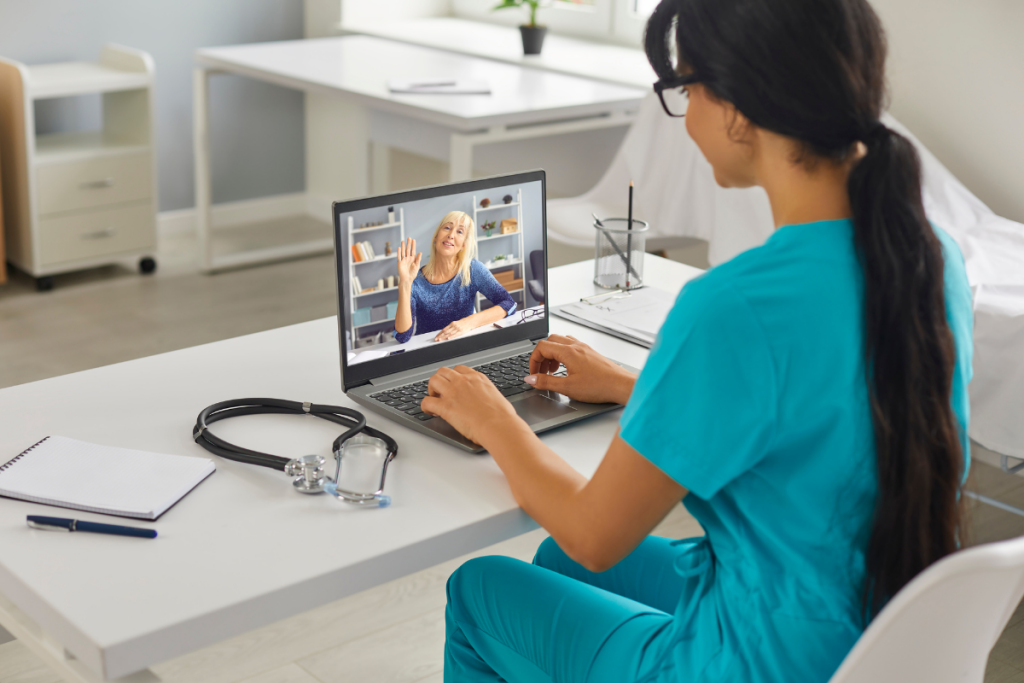All Things Admin Joins ASAP. Learn More ›
Thriving Through Change: Tips for Medical Office Managers in Evolving Environments
May 21, 2024

Technological change isn’t just the norm in medical office management—it’s the driving force behind every move we make. From the meteoric rise of telehealth to the digital transformation of patient communication, the landscape is shifting faster than ever before. And in the midst of this whirlwind of innovation, medical office managers are the ones at the wheel, responsible for navigating their teams through uncharted territory.
With telehealth becoming increasingly common and patient communication undergoing a digital revolution, admins have a golden opportunity to demonstrate their leadership and adaptability like never before. Keep reading to uncover strategies to drive your medical office toward success in today’s rapidly evolving healthcare landscape.
Meeting the Demands of Modern Healthcare: The Role of Medical Office Managers
One of the key challenges facing medical office managers is the juggling act of implementing new systems and tools while maintaining exceptional care in an ever-changing environment. In an industry where top-quality care is not just expected, but essential for patient loyalty, the pressure is on to ensure that every process and interaction meets the highest standards.
What sets medical office managers apart is their intimate familiarity with traditional processes within their offices. Armed with this insider knowledge, they are uniquely equipped to navigate the complexities of office politics, patient needs, and essential healthcare practices.
When implementing new technologies, medical office managers play a crucial role in:
Safeguarding patient data
Maintaining compliance with regulatory requirements
Promoting the adoption of new systems
Fostering staff engagement during times of change
Optimizing processes and tools to provide high-quality patient care
Strategies for Thriving Through Healthcare Transformation
Medical office managers’ ability to embrace growth and maximize the use of new technologies sets the tone for organizational success. By diving deep into new tools and techniques, they showcase enthusiasm and proficiency that inspires the entire team.
Here’s how to set the stage for success:
Spearhead Employee Adoption
Lead hands-on workshops demonstrating the functionality and benefits of new technologies
Create step-by-step guides and FAQs to address common challenges and boost staff confidence in using new systems
Encourage peer-to-peer-support networks where staff can share tips and best practices for maximizing the use of technology in their roles
Establish Clear Standards for Information Management
Develop clear protocols for how patient information is captured, stored, and accessed within the organization
Train staff on protocols to ensure consistency in their implementation across all departments
Regularly review and update standards as regulations and best practices evolve
Maintain Compliance
Stay updated on HIPAA regulations and ensure staff are trained in maintaining patient privacy and data security
Conduct regular audits of electronic records and communication channels to identify and address compliance gaps
Maximize Patient Care
Develop standardized protocols for patient communication, including follow-up procedures, appointment reminders, and test result notifications
Train staff on effective communication techniques, emphasizing empathy, active listening, and clear information delivery to enhance patient engagement and satisfaction
Regularly solicit patient feedback and incorporate suggestions for improvement into practice workflows to continuously enhance the patient experience
Listen to Our Podcast on Demonstrating Leadership Ability
Beyond simply adapting to change, medical office managers have the opportunity to drive it, shaping the trajectory of their organizations and propelling their careers forward. Their ability to boost staff morale and confidence through embracing new technologies and processes ensures a cohesive team and ultimately better patient outcomes. This is the commitment that medical office managers can make—to lead with clarity, ensuring that every step forward is deliberate and focused on achieving the highest standards of patient care.
Eager to learn more about demonstrating your leadership ability? Tune into our podcast episode on how to exude executive presence.
Join the Conversation
Welcome to the ASAP Circle, a community platform for peer-to-peer conversation on trending topics, professional challenges, and shared experiences. We even have designated spaces for weekly Tuesday Coffee Breaks.










